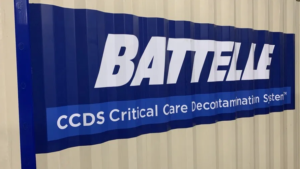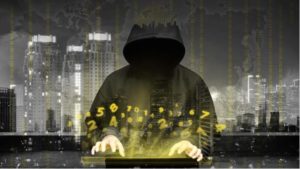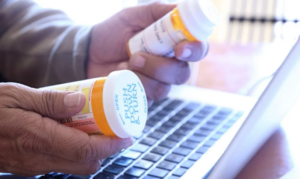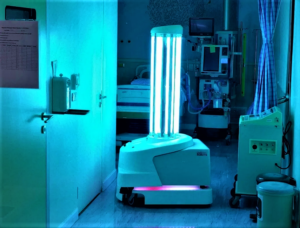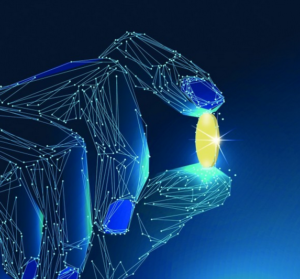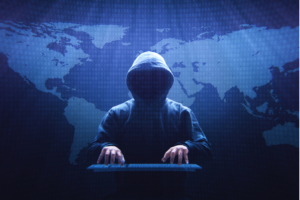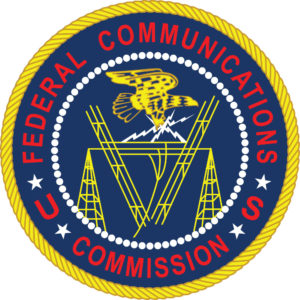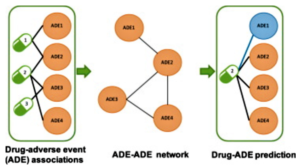- U.S. indictment says Chinese hackers tried to steal COVID-19 vaccine and drug research (fiercepharma.com)
Only days after three governments said Russian hackers were targeting groups conducting COVID-19 vaccine research, the U.S. has indicted two Chinese nationals for hacking hundreds of companies, governments and other organizations in the U.S. and beyond, including those working to combat the pandemic...A grand jury in Washington state returned an 11-count indictment against Li Xiaoyu and Dong Jiazhi for a 10-year “hacking campaign” targeting high-tech industries in the U.S. and several other countries. Recently, the hackers shifted their focus to companies researching COVID-19 vaccines, drugs and tests, according to authorities...READ MORE
- New technology cleans scarce N95 masks, but some question safety (reviewjournal.com)
New technology to disinfect N95 masks worn by health care workers is now in Nevada, but a major nurses union is questioning the effectiveness of the process...The Battelle Critical Care Decontamination System has been used to clean more than 1,700 of the N95 masks since early May. It uses vaporized hydrogen peroxide to kill the novel coronavirus, which causes the respiratory disease COVID-19...The new sanitization process is intended to make that equipment last even longer if necessary...Battelle says the system can clean a mask for up to 20 reuses, but National Nurses United, the country’s largest union of registered nurses, has repeatedly called for the process to be halted immediately...Union president Zenei Cortez wrote in a statement that union members reported their decontaminated masks came back deformed and their straps had lost elasticity. The masks’ ability to filter out dangerous particles depends on their snug facial fit...Similar concerns were also raised by a local hospital worker and member of the Nevada chapter of Service Employees International Union...READ MORE
- UCSF pays hackers $1.1M to regain access to medical school servers (fiercehealthcare.com)
Hackers extorted more than $1 million from the University of California, San Francisco after hitting its medical school servers with ransomware...On June 3, UCSF IT staff detected a security incident...Friday, the organization posted an update that it negotiated with the hackers to pay a portion of the ransom to regain access to the medical school servers..."The data that was encrypted is important to some of the academic work we pursue as a university serving the public good. We, therefore, made the difficult decision to pay some portion of the ransom, approximately $1.14 million, to the individuals behind the malware attack in exchange for a tool to unlock the encrypted data and the return of the data they obtained,"...READ MORE
- High Prices Forcing Americans to Buy Prescription Drugs From Overseas (newsmax.com)Socioeconomic and Demographic Characteristics of US Adults Who Purchase Prescription Drugs From Other Countries (jamanetwork.com)
More than 2 million Americans buy prescription drugs from other countries as a way around rising prices in the United States, a new study finds...The analysis of nationwide survey data showed that 1.5% of adults got their prescription meds from outside the United States between 2015 and 2017...Immigrants and people who were older or who had inadequate health insurance coverage and tight budgets were more likely to do so. Those who use the internet for health care information were, as well, the findings showed...The number of Americans looking for cheaper prescription drugs is likely to rise due to the spike in unemployment stemming from the coronavirus pandemic and the loss of work-based health insurance...READ MORE
- Dubai Health Authority deploys robots to disinfect facilities (healthcareitnews.com)
The Dubai Health Authority has introduced eight “smart” robots to sterilise its government-run hospitals and clinics...The robots – created by...UVD Robots – are part of the emirate’s drive to use smart technology, where possible, in the disinfection process in order for it to be “thorough, efficient and less time-consuming”...“[The] UVD Robot is used as part of the regular cleaning cycle, and aims at preventing and reducing the spread of infectious diseases, vira [SIC], bacteria, and other types of harmful organic microorganisms in the environment by breaking down their DNA-structure...READ MORE
- Tesla teams up with CureVac to make ‘RNA microfactories’ for COVID-19 shot, Elon Musk says (fiercepharma.com)
...CureVac has reportedly snared a big partner to help build its game-changing RNA "printers" that could turn global interest back in its favor...Tesla CEO Elon Musk tweeted Thursday that the electric carmaker had signed on with CureVac to make portable molecular RNA printers—what Musk called "RNA microfactories"—to help produce doses of the German vaccine maker's COVID-19 shot candidate...CureVac has previously touted its work on portable "printers" for its mRNA-based vaccines, which would allow the company to produce shots at scale in farflung locations without the standard logistical concerns...CureVac says its mRNA vaccine candidates direct cells to make proteins or antigens against various diseases. The platform encapsulates mRNA in a shell of lipid nanoparticles to protect it for delivery. The RNA printer itself—essentially a vaccine production device—can make “more than a hundred thousand doses” in a couple of weeks, the biotech says. It could work in a hospital pharmacy to help produce personalized medicines, for instance, as well as in outbreak regions...READ MORE
- Colorcon launches drug authentication platform (outsourcing-pharma.com)
The company’s SoteriaRx platform offers on-dose technology and detection services for authenticating a broad range of medications...(which)...protect patients from counterfeit products...on-dose authentication provides a powerful tool for tracking medicines from plant to patient and provides a level of supply chain authenticity and transparency not previously available. By incorporating microtags, the pill itself effectively becomes a barcode which can be digitally read and recorded, providing instant authentication...the incorporation of microtags essentially turns the pill itself into a barcode. This can be digitally read and recorded for authentication..READ MORE.
- UK, US, Canada accuse Russia of hacking virus vaccine trials (apnews.com)
Britain, the United States and Canada accused Russian hackers on Thursday of trying to steal information from researchers seeking a coronavirus vaccine, warning scientists and pharmaceutical companies to be alert for suspicious activity...Intelligence agencies in the three nations alleged that the hacking group APT29, also known as Cozy Bear and said to be part of the Russian intelligence services, is attacking academic and pharmaceutical research institutions involved in COVID-19 vaccine development...“It is completely unacceptable that the Russian Intelligence Services are targeting those working to combat the coronavirus pandemic,″ British Foreign Secretary Dominic Raab said in a statement, accusing Moscow of pursuing “selfish interests with reckless behavior.”...READ MORE
- FCC adds $198M for rural healthcare providers to boost telehealth services (fiercehealthcare.com)
The Federal Communications Commission is adding almost $200 million to a rural healthcare program to help providers buy telecommunications and broadband services...Rural healthcare providers have been hit hard by the COVID-19 pandemic due to the loss in revenue from canceled or deferred elective procedures and the additional expense of personal protective equipment...At the same time, telehealth visits have surged as patients seek virtual care options during the pandemic. The Trump administration lowered regulatory barriers for rural areas. Physicians can care for patients at rural facilities across state lines and via telemedicine...And in many places—particularly rural areas that have the most to gain from telemedicine and connectivity—broadband remains too expensive, unreliable or simply not available at the speeds required to enable innovations in care...READ MORE
- New Machine Learning Tool Can Predict Adverse Drug Effects (drugtopics.com)Development of an adverse drug event network to predict drug toxicity (sciencedirect.com)
A new computer algorithm might be the next step toward accurate prediction of adverse drug reactions..Researchers from Harvard Medical School and the Novartis Institutes for BioMedical Research announced the creation of an open-source machine learning tool capable of predicting drug adverse effects (Aes)...The study, published in The Lancet journal EBioMedicine, examined 2 databases: 1 that reported adverse drug reactions and another with 184 proteins that specific drugs are known to interact with. Investigators constructed a computer algorithm to develop associations between the drug reactions and the 184 individual proteins...The algorithm discovered 221 associations, some known and some new. These associations indicated which proteins contribute to certain AEs and which may not...The new algorithm could help predict these AEs before the drug goes to human clinical trials, as well as before and after it enters the market...READ MORE


